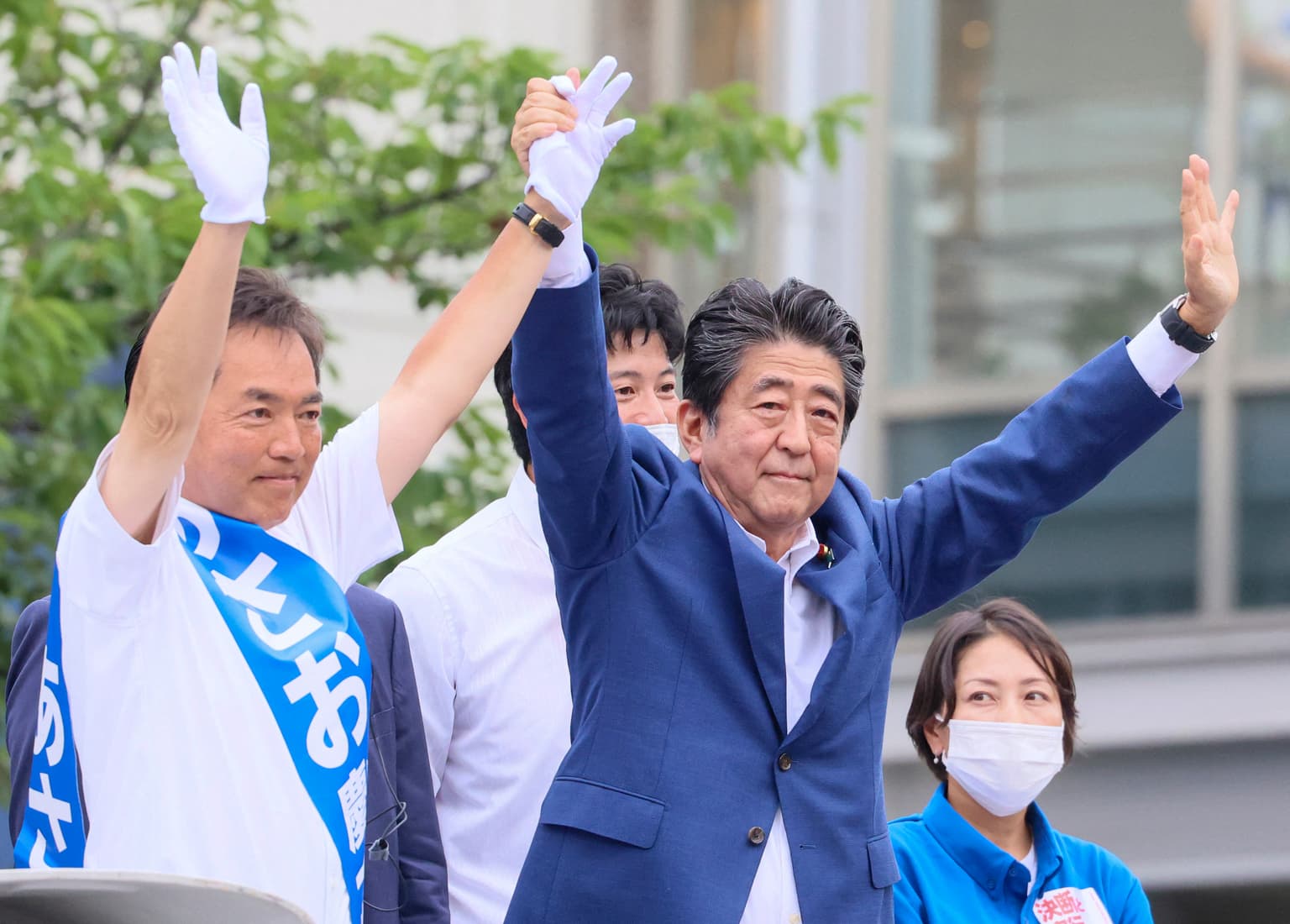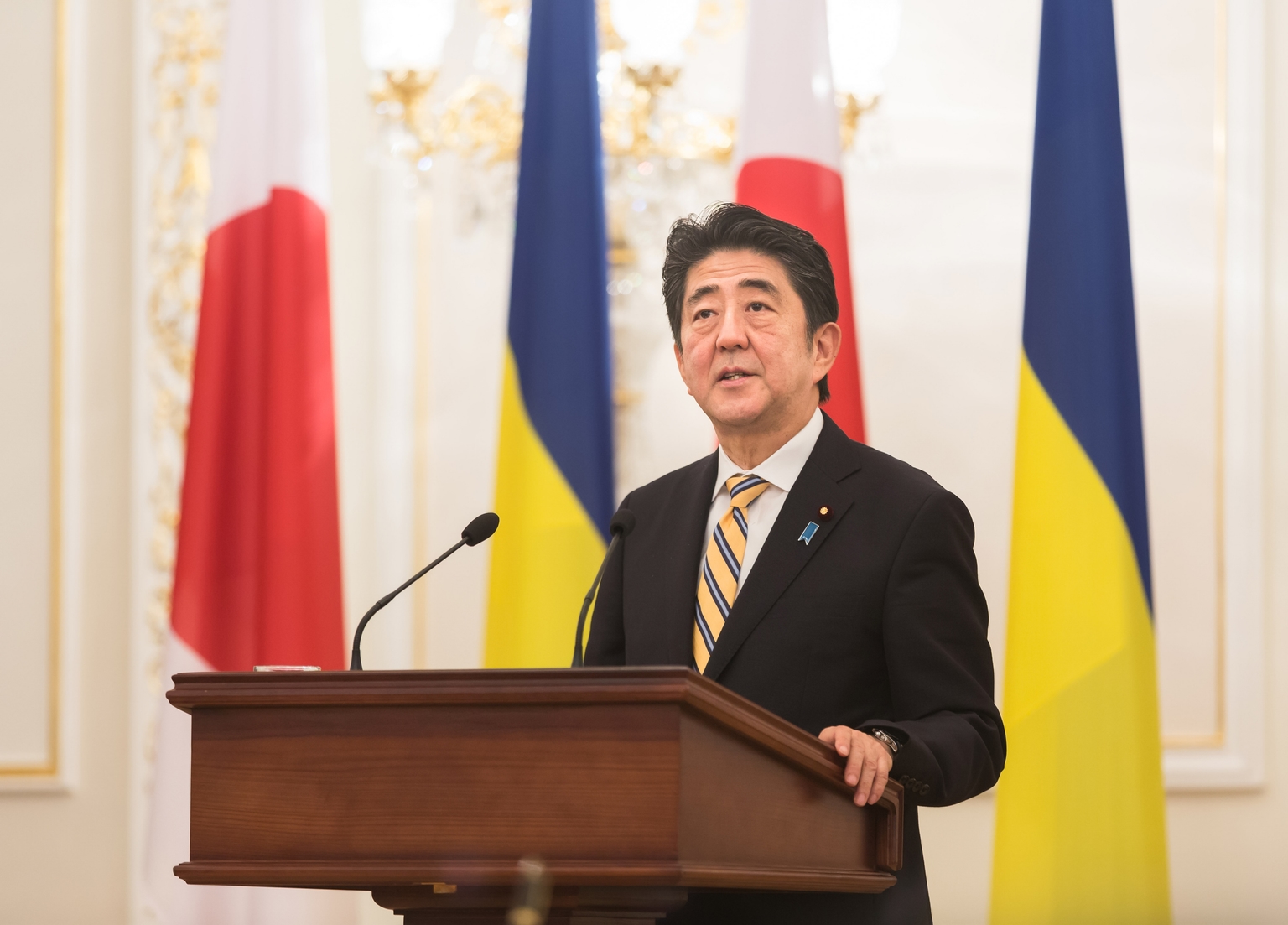Ukrainians decry assassination of Japan’s ex-PM Shinzo Abe

Leaders of the world condemned the July 8 assassination of Shinzo Abe, the longest-serving prime minister in Japan’s history.
Abe was fatally shot during a campaign speech in Nara, a city popular with tourists near Kyoto. The gunman was arrested by the police and admitted to shooting the politician.
The former prime minister was known as a supporter of Ukraine, despite efforts to maintain and repair diplomatic ties with Moscow. As news of his death spread around the world, world leaders, including Ukrainian officials, expressed their grief.
President Volodymyr Zelensky extended his deepest condolences to Abe’s family and the people of Japan “at this difficult time” in a Twitter post. “This heinous act of violence has no excuse,” Zelensky wrote.
Sergiy Korsunsky, Ukraine’s ambassador to Japan, told the Kyiv Independent he was “very distressed” by Abe’s death and expressed condolences to his family.
Korsunsky also praised Abe for having imposed Japan’s first-ever wave of sanctions against Russia in 2015 after Russia first invaded Ukraine and annexed Crimea, but said they could have been stronger.
Since Russia’s full-scale invasion began in February, Japan’s policies toward Russia changed dramatically as it joined Western efforts to implement sanctions in an attempt to starve Moscow’s economy.
“We may like or dislike (Abe’s attempts to negotiate with Russia) but I believe it was his best desire to do what he considered important to do for Japan,” Korsunsky said. “He was a great politician and a good friend of Ukraine, and we are very shocked with his death.”
Supporter of Ukraine
While Ukraine and Japan are separated by more than 8,000 kilometers, both nations have endured similar struggles: from having territories occupied by Russia to facing the world’s worst nuclear power plant accidents.
Abe is the only Japanese prime minister to ever have visited Ukraine. He held a meeting in Kyiv in 2015 with then-president Petro Poroshenko.
When Zelensky was elected president in 2019, he attended the enthronement of Japanese Emperor Naruhito and separately held a meeting with Abe while visiting Japan.
Following the meeting, Zelensky said Ukraine is “grateful for Japan's consistent policy of supporting Ukraine and for not recognizing the illegal occupation of Crimea,” as well as maintaining sanctions against Russia.
Under Abe, Japan provided Ukraine a loan of $1.5 billion, the majority of which went into the modernization of Bortnychi Aeration Station in Kyiv, according to the Japanese embassy in Ukraine.
Other financial support during Abe’s tenure included millions of dollars worth of grants to help internally displaced people in Ukraine as well as to improve the economy.

Playing both sides
Though Abe had already resigned due to health issues when Russia’s full-scale invasion began in February, he stated that Russia’s war was a wake-up call for Japan.
Japan and Russia have never signed a peace treaty formally concluding WWII hostilities because of a long-running territorial dispute over islands off of Japan’s northernmost island of Hokkaido, seized at the time by the Soviet Union.
Abe attempted to return the islands through negotiations with Russian dictator Vladimir Putin, all of which failed to yield results. Abe faced criticism for visiting Russia 11 times as prime minister since 2012 and for pursuing closer ties and negotiations with Vladimir Putin.
Abe’s critics at the time said he was being “played by Putin,” while also saying he had to continue his support for Ukraine because the U.S., Japan’s closest ally, had scrutinized his close relations with Moscow.
Critics cast doubt over Abe’s support for Ukraine, claiming that his administration’s financial and political support for Ukraine was consolation to Japan’s Western allies for continued peace talks and visits to Russia.
They also claim Abe’s visit to Ukraine in 2015 and financial support was the result of the U.S. President Barack Obama administration's skepticism of Japan’s ties with Russia.
But since Russia’s all-out war against Ukraine began, the relationship between Russia and Japan has soured. Russia withdrew from talks in March and has frozen joint economic projects related to the disputed islands.
Some Ukrainians living in Japan have also felt uneasy about Abe’s diplomatic ties with Putin. One of them is Oksana Piskunova, originally from an occupied town in Donetsk Oblast, who has lived near Tokyo for over 20 years.
While Piskunova said Abe’s assassination was “very sad,” she did not like Abe’s policy against Russia and how he continued to call Putin “Vladimir” while continuing negotiations.
Abe was also criticized for avoiding mentioning Putin while condemning Russia’s invasion of Ukraine on Feb. 24.
Other Ukrainians, like Alexander Gaidin, who lives in Osaka, praised his attempts to resolve the issue with the disputed islands and “for his amazing smile.”
“Personally, I feel a deep sadness and devastation,” Gaidin told the Kyiv Independent.











